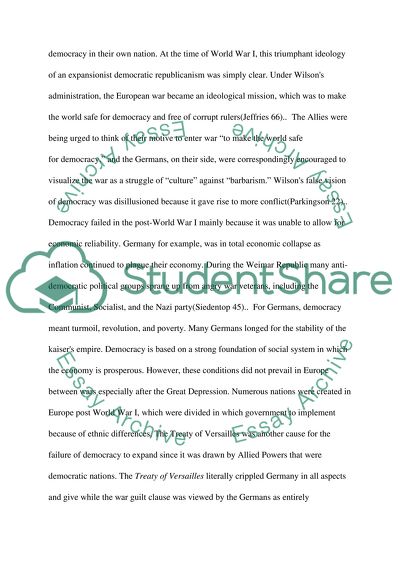Cite this document
(Democracy and Totalitarianism in Europe Essay Example | Topics and Well Written Essays - 1500 words, n.d.)
Democracy and Totalitarianism in Europe Essay Example | Topics and Well Written Essays - 1500 words. https://studentshare.org/history/1568931-account-for-the-widespread-failure-of-democracy-in-europe-between-the-two-world-wars
Democracy and Totalitarianism in Europe Essay Example | Topics and Well Written Essays - 1500 words. https://studentshare.org/history/1568931-account-for-the-widespread-failure-of-democracy-in-europe-between-the-two-world-wars
(Democracy and Totalitarianism in Europe Essay Example | Topics and Well Written Essays - 1500 Words)
Democracy and Totalitarianism in Europe Essay Example | Topics and Well Written Essays - 1500 Words. https://studentshare.org/history/1568931-account-for-the-widespread-failure-of-democracy-in-europe-between-the-two-world-wars.
Democracy and Totalitarianism in Europe Essay Example | Topics and Well Written Essays - 1500 Words. https://studentshare.org/history/1568931-account-for-the-widespread-failure-of-democracy-in-europe-between-the-two-world-wars.
“Democracy and Totalitarianism in Europe Essay Example | Topics and Well Written Essays - 1500 Words”. https://studentshare.org/history/1568931-account-for-the-widespread-failure-of-democracy-in-europe-between-the-two-world-wars.


